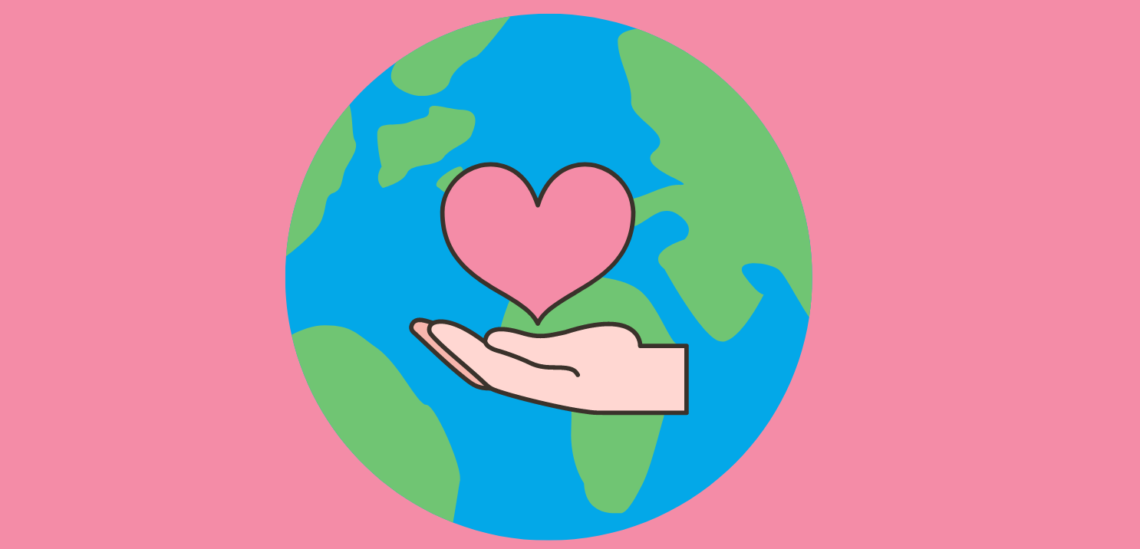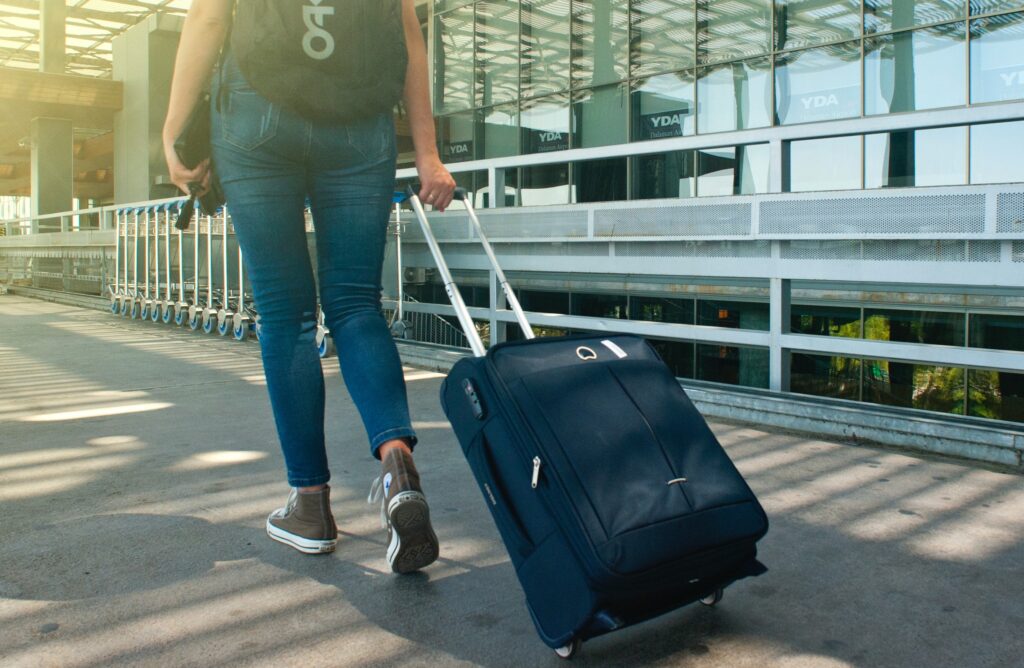
How to help people far away
Lisa Fraser offers practical advice about making a difference in places in need around the world.
In June 2022, Reuters reported that the number of people avoiding news, often or sometimes, had increased sharply across countries. For example, this phenomenon of ‘selective avoidance’ has doubled in the UK over the last five years, with almost half the population actively dodging the news.
One of the reasons stated by the respondents was the ‘negative effect on their mood’. Through the internet and global media, learning about the world has become easier than ever. We can access in real time all the details about the war in Ukraine, a water crisis in Chile, famine in Yemen … we can choose our disaster.
However, the Reuters’ report demonstrates that more and more we choose to cut ourselves off from these painful situations. Feeling powerless is uncomfortable. One might wonder, ‘why learn about these problems if I can’t solve them?’
Protecting our mental health is one legitimate reply. We should not make ourselves unwell out of concern for others. We can’t let anxiety take control and cripple us. On the contrary: I should be well so that I can help others.
The raison d’etre of compassion (from the Latin cum patire, to suffer with) is to help the person who is afflicted in the first place.
When we focus on the bigger picture – the world – we are, indeed, powerless. Financial markets largely decide on the allocation of wealth. States and international organisations largely decide on international rules. Untamed capitalism largely decides on the fate of climate change.
These truths are just the reflection of our human nature: we are limited beings. But they also reveal our biggest strength: we are interconnected. We need each other.
Acknowledging our smallness should not be a reason to give up; it should be a reason to team up, like ants building anthills, or bees making hives.
So, how do I connect myself with people overseas who need support?
The first step can be to look at what I personally have, which I can share. I can start by looking at my cupboards and see what I own: old (but quality) clothes; household appliances in working order, like old smartphones. A quick internet search will indicate which charity in my area receives these goods. Some charities send these goods abroad; while others sell them and use the funds raised to provide targeted support abroad.

One mistake is to believe that we can’t help people overseas because we don’t have large financial means. I feel uncomfortable and guilty when I cannot respond positively to a lovely volunteer shaking their fundraising bucket at me in the street. However, our wealth is not only material.
Immaterial support can be very real and powerful. For instance, speaking English is a gift, which we can use to support others. Offering online classes can be an option. If you don’t feel called to teaching, you can also have a virtual cup of coffee with someone who wants to practise their conversational English.
An English friend, with experience in the private sector, does online mock interviews with non-native speakers looking for a job. This is a powerful way to help someone in need get a foot on the career ladder.
There are opportunities for each age and stage of life. A young adult full of energy can help drive a truck of donated goods from a pick up point to a charity warehouse. A retired person can sit down and prepare envelopes to send to people in prisons in Haiti.
So given that opportunities are endless, where do I start? How do I get in touch with people in need?
I would recommend starting by examining one’s own strengths, weaknesses and constraints. Also, we should be honest about what moves us, and ask ourselves: which area do I feel called to support, which geographical zone, or which cause (poverty, hunger, women’s rights, climate change…)?
Narrowing down the options will help you find the right match. Then, we can spend time researching on the internet, to find the perfect fit. It’s important to try a few; go to the local charity or cause in person if possible, to see if you get on with the style of the teams and their ways of doing things.
Taking time to discern the right charity is important, as connecting with the right one helps us commit in a more sustainable way.
This process of identifying one’s gifts and matching with a charity is the classic path we think about when we talk about supporting people overseas. Acting makes us feel productive, useful, and this is much needed.
Some of us might be tempted to take a break from our lives (such as annual leave or a career break) to support people overseas. It is good if it’s a personal call, and if it’s realistic.

However, I think about Mother Teresa’s wisdom: “If each of us would only sweep our own doorstep, the whole world would be clean.” Sometimes taking a plane and rushing into chaos is not the best idea. There is also the process of inner conversion. Softening our hearts to the cry of others around us, closer to home, is equally important to bring change to the world.
When war in Ukraine started, money flew in to charities (rightly so). On the one hand, there is the knee-jerk reaction, which we see happening in extreme cases, like the earthquake in Haiti, or the massive Indian Ocean tsunami of 2004. Rightly so too! But there are more below-the-radar ways to help, which are equally important.
At the start of the Ukraine conflict, fellow parishioners of mine and colleagues organised talks to share news about their loved ones trapped in life-threatening situations in that country. We asked directly: “What does your family need?” The answers were often small and humbling, like: “They need money to buy a train ticket.” So, we paid for a train ticket.
Supporting people overseas also requires us to educate ourselves over time, beyond a situation of crisis, so that we learn to live in a way which brings change in more sustainable forms. We have a role to play in creating an environment of care.
Reading the news can be useful to educate ourselves – selecting the right sources, and the amount of time we spend on it. Awareness can also grow by being in contact with people overseas through colleagues, friends or parishes. Forcing ourselves to be open to the world, be it directly around us or abroad, is essential to connect with our human nature.
Ultimately, this awareness, and our ability to suffer with those in need, should shape the way we live our lives. In a free country like the United Kingdom, where we are allowed to vote, comparing manifestos in the light of how parties want to relate to the world should inform our choice.
Aid spending is the tip of the iceberg: we should also look at how the candidates see world safety, state cooperation and cultural ties, for instance.
Essentially, we should ask ourselves if our vote helps build a world where we live interconnectedly, or a world where each country competes with the other.
Cultural awareness and support are overlooked, but they also play a big role in supporting people overseas. The day after Eurovision 2022, I met with a Ukrainian priest. War was raging in his native country, and his family’s lives were at risk. Yet, he told me how feeling support pouring out from all over Europe brought joy and consolation to him and to his loved ones in Ukraine.

Small actions can help people abroad feel the love. It won’t stop the bullets. But bringing hope and a spark of life back to people’s hearts is invaluable.
Paradoxically, the lack of hope is also one of the reasons which stops people from trying to support their fellow human beings overseas.
Why am I writing this article? Deep down, most of us know how we can help, as we are bombarded by causes to support: in the street, by email, with online ads. But sometimes we need a nudge to make the first step. We need hope that our support will not be in vain.
It’s normal to feel overwhelmed, perhaps guilty for not doing enough, perhaps discouraged by the size of the task.
But we have to remind ourselves that success is not about ending a war, reversing climate change or freeing oppressed children. Success is about doing what we can today, with humility and hope.
We need to start somewhere – not tomorrow, but today. The hardest thing is probably to make a decision: where do I start? Who do I help?
We can start from a position of humility, acknowledging that our support won’t make the world a better place overnight. But we should start anyway. Even if we can only make one life better, for instance, by paying for one child’s school meals in a developing country, it will mean the world to one person.
My last message is about joy and gratefulness.
Yes, the situation is dire in many countries. It would be easy to be pessimistic about the way our world is going. There is a temptation to dwell in darkness, or to feel guilty, when we notice so much darkness around us.
But it should be the other way around: the darkness around us should make us truly grateful for what we have. If we fall into the pit of darkness, we will not be able to share light with others. It’s by rejoicing about what we have, and by nurturing these gifts, that we will be able to cast more light around us.
Most people reading this article live in a free country, where we can vote and enjoy free speech; we’re free to love whoever we want; there are safety nets in place for food, water, sanitation and shelter – more than in some other countries where destitution is almost a death sentence.
These are reasons to celebrate, with humility, and a deep sense of gratefulness. These are reasons to work hard to make this system work – by participating in the political process, by promoting the values we care about, by fixing the system where it needs fixing, by sharing a bit of the gifts we have received.
Helping people overseas is twofold: it means stretching out our hand, and sharing what can be shared, and it also means working hard to promote alternatives that are fairer, more protective, and fulfilling.
What step will you take today?
Like what you’ve read? Consider supporting the work of Adamah by making a donation and help us keep exploring life’s big (and not so big) issues!
Lisa Fraser
Lisa Fraser is a writer for Adamah Media. She has worked as a political Special Adviser, in lobbying and as a consultant, before joining the Civil Service. She loves having long walks, visual arts, and reading books about history and politics.

